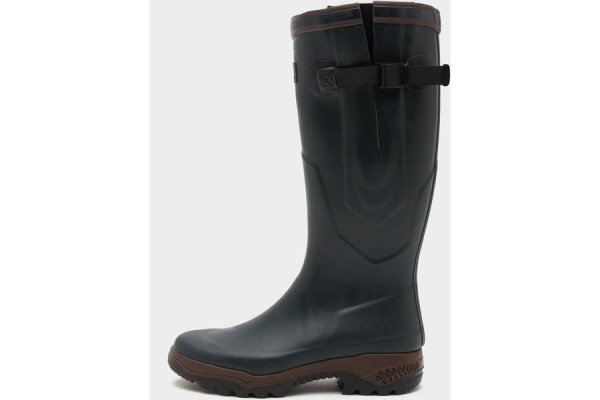FORCLAZ - Trekking Sleeping Bag MT500 15°C - Polyester
Last checked price £29.99
365 day return for Members
Membership Programme
* Prices need to be checked at the Merchant's website as they may have changed
Quote from The Merchant's Website:
"Our designers, who are all outdoor enthusiasts, designed this feather sleeping bag to help you sleep comfortably at temperatures above or equal to 15°C.
This very compact, lightweight bag has a wide temperature range of use. Sleep sound from 15° to 25°C thanks to these two 3/4 zips with a double slider to manage the temperature: tailored ventilation."
- Optimum temperature: Comfort temperature 15°C, limit temperature 10°C. Synthetic padding
- Easy transport: For size LWeight: 680 g. Volume 4.5 Litres. Stuff Bag
- Sleeping quality: Very comfortable mummy shape. 2 x 3/4 zips with a two-way cursor for ventilation
- Compatibility: Can be twinned with other models from the Forclaz MT500 range
- Water repellent: Outer surface of the fabric is treated so that water runs off the surface
- Ecodesign: Grey fabrics:one out of every two threads dyed to lower the environmental impact
What is the temperature rating?
We display on all our sleeping bags the comfort temperatures tested by an independent laboratory (AITEX) according to European standard ISO 23537-1 of 21/01/2017. The comfort temperature rating is the lower limit at which the user in relaxed posture is generally in thermal equilibrium and feels neither too cold nor too hot (for a standard woman in normal conditions of use). CHOOSE YOUR SLEEPING BAG ACCORDINGLY
What is the temperature rating (lower limit at which you feel comfortable)?
- The comfort limit temperature is the temperature limit at which a person curled up in the sleeping bag is in general thermal equilibrium, neither too cold nor too hot (determined for a man in normal conditions of use).We recommend using an insulation mattress to optimise your thermal comfort.
What you need to know about temperatures
A sleeping bag does not produce heat, but retains the heat produced by the body. If you are tired and cold and you slip inside a cold, damp sleeping bag, it is very likely that you will feel cold no matter how good your sleeping bag is! Your thermal comfort will therefore depend not only on climatic conditions (humidity, wind, etc.) but also on your sensitivity to cold (fatigue, etc.), your equipment (insulating mattress, etc.) and your clothing (naked, underwear, etc.)
Tips before getting into your bag
- Dress simply (1 layer of clothing is enough). Warm-up your extremities: hats, gloves, socks, hand/feet warmers, rubdowns, etc. A flask of hot water can be used as a hot water bottle (as long as there's no chance of it accidentally opening!)
- Contract your muscles (70% of the energy consumed is converted into heat) but do it without moving as this could create a draught.
- Use a bag liner to optimise warmth and avoid washing your sleeping bag too frequently.
Style
- A generous mummy shape that is wide at the shoulders and narrow at the feet to optimise thermal insulation (no heat loss) and make the product more compact, while maintaining some freedom of movement.
- Shoulder width 70 cm, height at feet 32 cm in size L, 62/28 in S, 66/30 in M, 74/34 in XL
Weight and dimensions
- Size S: 590 g, user up to 1.59m tall. Bag dimensions: L 27 cm Ø 12.5 cm. Volume 3.3 L.
- Size M: 630 g, user from 1.60m to 1.69m tall. Bag dim.: L 27 cm Ø 13.5 cm. Volume 3.9 L.
- Size L: 680 g, user from 1.70m to 1.84m tall. Bag dim.: L 27 cm Ø 14.5 cm. Volume 4.5 Litres. Size XL: 740 g, user from 1.85m to 2m tall. Bag dim.: L 27 cm Ø 15.5 cm. Volume 5.1 L.
- Volume & dimensions may vary according to the compression applied to the product.
Functions
- Ergonomic hood with drawcord.
- A baffle along the zips prevents heat loss.
- Double-slider zips for optimal ventilation.
- The top of the sleeping bag can be opened with the two side zips.
Want to know more about the wadding?
- We use 1 layer of 100% polyester wadding (90% recycled) at 60 gr/m2.
- It retains its warmth even when wet.
Compatibility
- Can be twinned with all the Forclaz MT500 sleeping bag models.
- Can be twinned with the older models in the 2017 "Ultralight" and 2018 "Light" ranges.
ADDITIONAL SUSTAINABLE DEVELOPMENT INFORMATION
- Textile dyeing requires a lot of water but also produces waste water from the dye baths. To reduce this impact on the environment, for the grey fabrics of the sleeping bags, we dye every other yarn in bulk, thereby reducing our water consumption and pollution.
- This process can reduce CO2 emissions by 19% compared to traditional dyeing methods.
- In addition, we use a wadding made from 90% recycled polyester.
How to repair your sleeping bag
- On a trek, you can snag a sleeping bag, it happens! The good news is that it can be repaired to prevent the tear from getting bigger or the synthetic fibres from escaping.
- To do this, we recommend that you use self-adhesive repair patches (ref: 8584596).










